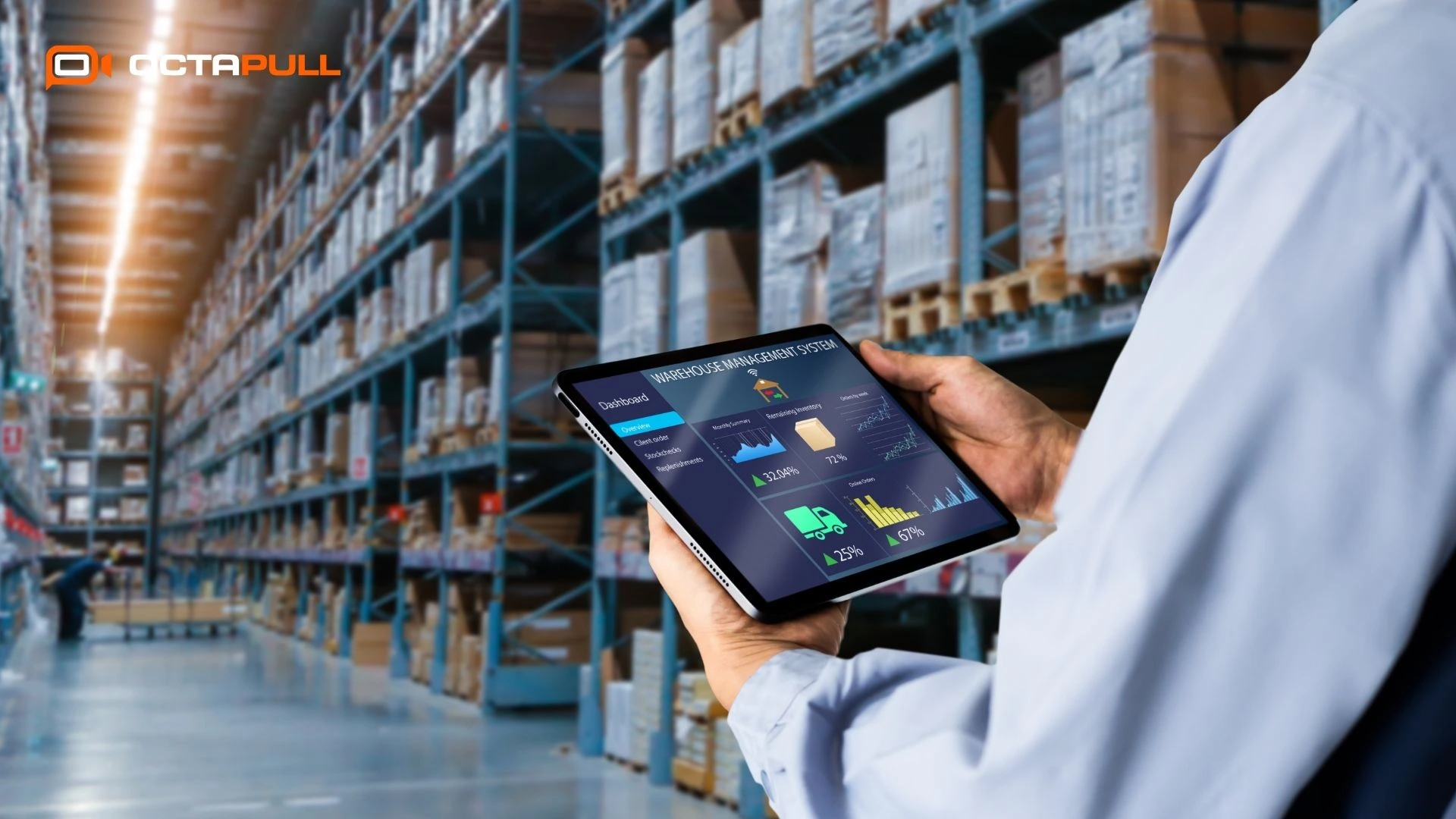LLM and Machine Learning: Technologies of the Future
Large Language Models (LLMs), which excel at understanding and generating human language, and Machine Learning (ML), which enables intelligent decision-making through data analysis, are the cutting-edge tools at the forefront of technological advancement.
These tools are not just transforming industries but are also redefining how we work and engage with customers in a world where remote and hybrid models are becoming the norm.
LLMs, with their ability to understand and generate human language, and Machine Learning, which enables intelligent decision-making through data analysis, are revolutionizing the way businesses operate and connect with their audiences.
Understanding LLM and Machine Learning
What is LLM Technology?
Large Language Models (LLMs) are a type of artificial intelligence designed to understand and generate human language.
At their core, LLMs are trained using vast amounts of text data—ranging from books and articles to websites and social media posts. By analyzing this extensive data, these models learn the intricacies of human language, including grammar, context, and even nuances such as tone and style.
An LLM, such as those in OpenAI's GPT series, doesn't just mimic human language; it comprehends the context of what it reads or writes, enabling it to generate responses that are relevant and coherent.
This capability allows LLMs to perform a wide array of tasks. For instance, they can help draft emails by suggesting sentences or even entire paragraphs based on the context you provide.
In marketing, LLMs can generate content tailored to specific audiences, ensuring that messages are both engaging and on-point. Moreover, LLMs can analyze and process natural language, making them valuable tools for customer service, content creation, and even virtual assistants.
As technology advances, these models continue to improve, making them increasingly capable of handling more complex language tasks with impressive accuracy.
In summary, LLMs are essential in today's digital world because they bring a level of understanding and generation of language that closely mirrors human communication.
The Role of Machine Learning in LLM
Machine Learning (ML) is another critical aspect of artificial intelligence, but it operates differently from LLMs.
Machine Learning involves creating algorithms that allow computers to learn from data, identify patterns, and make decisions with minimal human intervention. Unlike traditional programming, where a computer follows direct instructions to perform tasks, Machine Learning enables computers to learn from experience.
For example, in traditional programming, if you wanted a computer to recognize images of cats, you would have to write a detailed code specifying every possible characteristic of a cat. With Machine Learning, the approach changes.
You would feed the computer thousands of images labeled as "cats" or "not cats," and the algorithm would learn to recognize the patterns and features that distinguish cats from other objects. Over time, the system improves its accuracy by refining its predictions based on new data.
This ability to learn and adapt makes Machine Learning particularly useful in various fields.
In data analysis, Machine Learning algorithms can sift through enormous datasets to uncover trends and insights that might not be immediately obvious.
In innovative approaches to global sales and digital marketing, Machine Learning can be used to segment customers into different groups based on their behavior and preferences, allowing for highly personalized marketing campaigns.
Additionally, Machine Learning can predict future market trends based on historical data, helping businesses make informed decisions.
Overall, Machine Learning is a powerful tool that helps computers move beyond traditional programming and into the realm of intelligent decision-making, making it indispensable in today's data-driven world.
The Impact of LLM on Remote Working
Enhancing Communication and Collaboration
One of the most significant challenges in remote work is maintaining clear and effective communication which directly affects efficiency in global sales.
LLMs are stepping in to fill this gap by offering advanced language processing capabilities.
Virtual and Online Meetings
For instance, during virtual meetings, LLMs can generate responses that are not only coherent but also contextually relevant to the discussion, making them useful for summarizing points or suggesting follow-up actions.
If someone in the meeting mentions a complex topic, the LLM can quickly provide a concise explanation or relevant data, enhancing the flow of communication.
During an online meeting, LLMs can assist in a few ways to provide real-time information:
- Real-Time Summarization: While you're discussing a topic, an LLM integrated into the meeting platform can listen to the conversation and automatically summarize key points or action items. This summary could be displayed in a chat window or as a pop-up on your screen, helping you keep track of important details without needing to take notes manually.
- Instant Explanations: If someone mentions a complex term or concept during the meeting, an LLM can quickly generate a brief explanation or relevant data. This information can be provided through a side panel or chat feature, allowing participants to understand the topic better without interrupting the flow of the conversation.
- Automated Responses: In certain scenarios, the LLM can suggest responses or follow-up actions based on the discussion. For example, if a decision is made to schedule a follow-up meeting, the LLM could automatically draft a proposed email or calendar invite that you can review and send with a single click.
- Language Translation: If team members speak different languages, an LLM can translate spoken words in real-time, displaying subtitles or providing translations in a chat. This ensures that everyone understands the discussion, regardless of their native language.
E-mail Campaigns
Additionally, when it comes to drafting emails, LLMs can assist by suggesting clear and concise language based on the context of the conversation.
For example, if you’re responding to a client inquiry, the LLM can help you craft a response that is both professional and directly addresses the client’s concerns, ensuring that the communication is effective and precise.
Breaking Language Barriers
Moreover, in a global work environment where team members may speak different languages, LLMs can automatically translate languages in real time.
This capability breaks down communication barriers, allowing team members from different linguistic backgrounds to collaborate more effectively.
Whether it’s translating a message during a live chat or converting an email from one language to another, LLMs make it easier for teams to understand each other, fostering smoother collaboration across borders.
AI-Powered Tool Support
For instance, AI-powered tools such as chatbots and virtual assistants are becoming more prevalent in remote work settings. These tools can handle routine inquiries, schedule meetings, and manage workflow processes, freeing up valuable time for employees to focus on more strategic tasks.
By facilitating smoother communication, LLMs contribute to more efficient and productive remote work environments.
The Impact of Machine Learning on Remote Working
Automation and Task Management
Machine Learning is revolutionizing task tracking and time management in remote working environments.
Through automation, Machine Learning can handle repetitive tasks such as data entry, report generation, and customer service queries. By leveraging algorithms that learn from previous interactions, these systems can improve their efficiency and accuracy over time.
This automation not only reduces the workload on remote teams but also minimizes errors, leading to higher-quality outputs.
Additionally, Machine Learning tools can prioritize tasks based on urgency and relevance, ensuring that remote teams focus on what matters most. This level of automation and task management is critical in maintaining productivity in a remote working model.
Personalized Remote Workspaces
Machine Learning is also playing a key role in creating personalized remote work experiences.
By analyzing data on individual work habits, preferences, and productivity patterns, Machine Learning algorithms can suggest optimal work schedules, recommend breaks, and even adjust the digital workspace to enhance comfort and efficiency.
This personalization ensures that remote workers are not only productive but also maintain a healthy work and home life balance.
Transforming Digital Sales & Marketing with LLM and Machine Learning
Data-Driven Decision Making
In digital sales and marketing, data is crucial. Machine Learning algorithms can analyze vast datasets to identify trends, customer preferences, and market opportunities.
This data-driven approach allows businesses to make informed decisions that are more likely to resonate with their target audience and helps to win loyal customers.
For example, by analyzing customer behavior data, Machine Learning can predict which products are likely to be popular, enabling companies to optimize their inventory and marketing strategies.
Content Generation and Optimization
LLMs are particularly useful in content governance. These models can generate high-quality content that is tailored to specific audiences, ensuring that marketing messages are both relevant and engaging.
Whether it’s creating blog posts, social media content, or product descriptions, LLMs can produce text that resonates with the target audience while adhering to brand guidelines.
Furthermore, Machine Learning can be used for Search Engine Optimization (SEO). By analyzing search patterns and user behavior, Machine Learning algorithms can suggest keywords, adjust meta descriptions, and even recommend content structures that are more likely to rank higher on the Search Engine Results Page (SERP).
This optimization is crucial for businesses looking to improve their online visibility and attract more customers.
Personalized Marketing Strategies
Personalization is a key trend in digital marketing, and Machine Learning is at the forefront of this movement.
By analyzing customer data, Machine Learning can create personalized marketing campaigns that cater to individual preferences and behaviors.
For instance, Machine Learning algorithms can recommend products to customers based on their browsing history, send personalized email campaigns, and even adjust pricing strategies in real time based on demand and competition.
This level of personalization not only enhances the customer experience but also increases conversion rates.
Customers are more likely to engage with content and offers that are relevant to their needs and preferences, making personalized marketing a powerful tool for driving sales and building brand loyalty.
Remote Work and AI: A Perfect Match
Large Language Models (LLMs) and Machine Learning (ML) are types of artificial intelligence (AI).
LLMs are a specific application of AI focused on understanding and generating human language. They use advanced machine learning techniques to analyze and produce text based on patterns learned from extensive datasets.
Machine Learning, on the other hand, is a broader subset of AI that involves creating algorithms that enable computers to learn from data and make predictions or decisions without being directly programmed for each task.
Essentially, while AI is the overarching field, Machine Learning provides the methods and techniques used to achieve various AI capabilities, including those seen in LLMs.
The rise of remote work has accelerated the adoption of AI technologies such as LLMs and Machine Learning. These tools are particularly well-suited to remote work environments, where efficiency, communication, and personalization are key.
As more businesses embrace remote and hybrid working models, the demand for AI-driven solutions will only increase.
LLMs and Machine Learning: Key Drivers of the Future
Large Language Models and Machine Learning are not just buzzwords; they are transformative technologies that are shaping the future of remote working and digital sales & marketing.
By enhancing communication, automating tasks, and enabling personalized experiences, these technologies are making it easier for businesses to thrive in a digital-first world.
As we move forward, the integration of AI with human creativity and the expanding role of AI in customer engagement will continue to drive innovation in these fields, making LLM and Machine Learning indispensable tools for the future.
How OctaMeet Enhances Remote Work with LLM and Machine Learning
OctaMeet - a sophisticated video conferencing application developed by OCTAPULL - exemplifies how LLMs and Machine Learning can further enhance remote work environments. With its advanced features such as:
- Calendar Integrations: OctaMeet seamlessly integrates with various calendar systems, allowing for efficient scheduling and management of meetings. This feature ensures that all participants are coordinated and aware of their commitments.
- HD Quality: Offering high-definition video and audio, OctaMeet ensures that communication remains clear and professional, even in a virtual setting. This clarity is crucial for effective collaboration and decision-making.
- In-Meeting Messaging: OctaMeet includes a messaging feature that facilitates real-time communication and exchange of information during meetings. This allows participants to share insights or follow-up questions without interrupting the speaker.
- Meeting Transcription and Summaries: OctaMeet's subtitle feature can automatically transcribe meeting conversations, making it easier to review and reference key points and decisions. This feature enhances productivity by providing accurate records of discussions and action items.
These features, powered by LLM and Machine Learning technologies, contribute to a more efficient and productive remote work environment.
As businesses continue to adapt to remote and hybrid models, integrating AI-supported tools such as OctaMeet will be instrumental in maintaining seamless communication and collaboration.
As we move forward, the integration of AI with human creativity and the expanding role of AI in customer engagement will continue to drive innovation in remote work and digital sales & marketing.
Try OctaMeet!
Discover how OctaMeet can enhance your virtual collaboration and support your remote team’s productivity. Start your digital transformation journey with a free 30-day trial to experience the difference firsthand, or schedule a demo meeting with our product team to explore application and licensing details.






